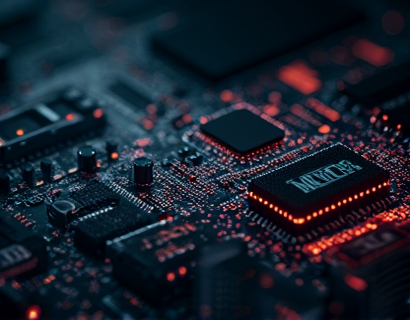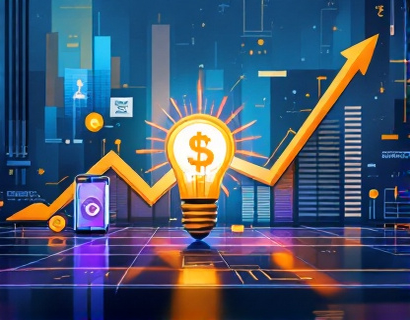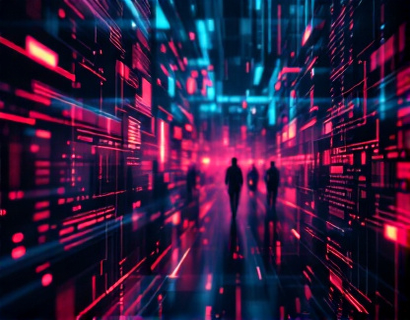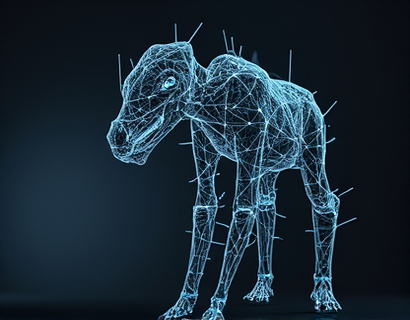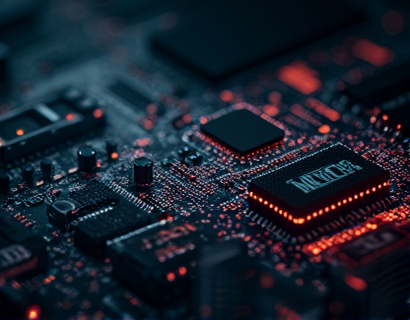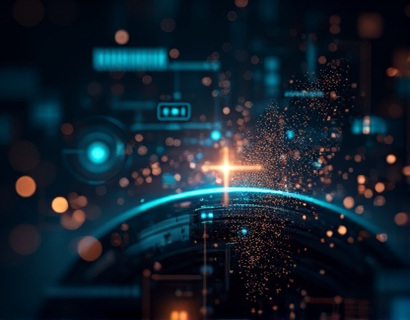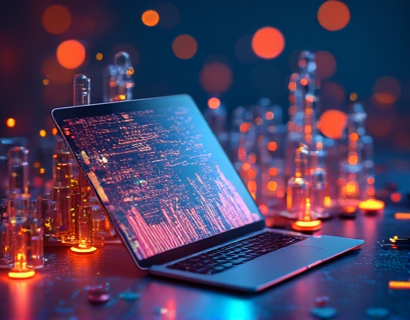Revolutionizing Productivity: The Synergy of Crypto and AI
The digital age has ushered in a new era of technological advancements, where cryptocurrency and artificial intelligence (AI) are at the forefront of innovation. This article delves into how the integration of these two cutting-edge technologies is transforming productivity, offering next-gen solutions that cater to tech-savvy users and early adopters. By exploring the synergy between crypto and AI, we aim to provide a comprehensive understanding of how these tools are streamlining tasks and enhancing efficiency in the modern digital landscape.
Understanding Cryptocurrency and AI
Before diving into the applications, it's essential to grasp the fundamentals of cryptocurrency and AI. Cryptocurrency, a digital or virtual currency, uses cryptography for security and operates on a decentralized network, typically a blockchain. This technology ensures transparency, security, and immutability, making it an ideal foundation for various financial and non-financial applications.
Artificial intelligence, on the other hand, involves the simulation of human intelligence in machines that are programmed to think and learn like humans. AI encompasses machine learning, natural language processing, and robotics, enabling systems to perform tasks that traditionally required human intervention. The combination of cryptocurrency and AI creates a powerful synergy, leveraging the strengths of both to create innovative solutions.
The Rise of Crypto-Driven AI Solutions
The convergence of cryptocurrency and AI has given birth to a new generation of applications and platforms designed to enhance productivity and efficiency. These solutions are not only transforming the way we work but also redefining the economic models in which we operate. Let's explore some of the key areas where this synergy is making a significant impact.
Decentralized Autonomous Organizations (DAOs)
DAOs are organizations governed by smart contracts on a blockchain, allowing for decentralized decision-making and management. By integrating AI, DAOs can automate complex processes, optimize resource allocation, and enhance governance. For instance, AI algorithms can analyze data to make informed decisions, predict market trends, and manage risks, all within a transparent and secure framework provided by blockchain technology.
These autonomous organizations empower members with greater control and transparency, reducing the need for intermediaries and lowering transaction costs. The result is a more efficient and democratic way of managing projects and businesses, appealing to tech-savvy individuals and organizations seeking innovative solutions.
Smart Contracts and Automated Workflows
Smart contracts are self-executing contracts with the terms of the agreement directly written into code. When combined with AI, smart contracts can automate complex workflows, ensuring that tasks are executed precisely and efficiently. For example, in supply chain management, AI can predict demand and optimize inventory levels, while smart contracts can automatically trigger payments and adjustments based on predefined conditions.
This automation reduces human error, speeds up processes, and enhances trust among parties. For businesses and individuals, this means more time to focus on core activities and less time on administrative tasks, significantly boosting productivity.
Enhanced Security and Privacy
One of the most significant advantages of using cryptocurrency in AI-driven solutions is the enhanced security and privacy they offer. Blockchain's decentralized nature and cryptographic techniques ensure that data is secure and tamper-proof. AI can further bolster security by detecting and mitigating threats in real-time, identifying patterns that indicate potential breaches or fraudulent activities.
For users concerned about data privacy, this combination provides a robust framework. AI can anonymize data and ensure compliance with regulations, while blockchain ensures that once data is recorded, it cannot be altered without detection. This dual-layer security is particularly valuable for businesses handling sensitive information, making their operations more secure and reliable.
Practical Applications in Various Industries
The potential of crypto and AI is not limited to a single industry; it spans across various sectors, each benefiting in unique ways. Let's explore some of these applications to understand the breadth of impact.
Finance and Banking
In the finance sector, the integration of cryptocurrency and AI is revolutionizing traditional banking practices. AI-driven algorithms can analyze vast amounts of financial data to provide personalized investment advice, detect fraud, and manage risks. Cryptocurrencies offer a faster and more cost-effective way to conduct transactions, reducing the reliance on traditional banking systems.
Decentralized finance (DeFi) platforms leverage these technologies to provide lending, borrowing, and trading services without intermediaries. This not only lowers costs but also increases access to financial services for underserved populations. For tech-savvy individuals, these platforms offer new opportunities for investment and financial management.
Healthcare
In healthcare, AI can analyze medical data to predict patient outcomes, personalize treatment plans, and optimize resource allocation. When combined with cryptocurrency, patient data can be securely shared and managed, ensuring privacy and compliance with regulations. Smart contracts can automate insurance claims and payments, streamlining the process and reducing administrative burdens.
Telemedicine platforms can also benefit from this synergy, using AI to provide virtual consultations and cryptocurrency to facilitate secure and transparent transactions. This enhances patient care and makes healthcare more accessible and efficient.
Supply Chain and Logistics
The supply chain industry stands to gain significantly from the integration of cryptocurrency and AI. AI can optimize routes, predict demand, and manage inventory, while blockchain ensures transparency and traceability throughout the supply chain. Smart contracts can automate payments and ensure compliance with contractual obligations, reducing delays and disputes.
For businesses, this means improved efficiency, reduced costs, and enhanced trust among supply chain partners. For consumers, it translates to faster delivery times and greater transparency in the products they purchase. Tech-savvy companies in this sector are already adopting these technologies to stay competitive.
Challenges and Considerations
While the potential of crypto and AI is immense, there are several challenges and considerations that need to be addressed to fully realize their benefits.
Regulatory Environment
The regulatory landscape for cryptocurrency is still evolving, and the integration with AI adds another layer of complexity. Compliance with regulations is crucial to ensure legal operations and avoid penalties. Businesses and developers must stay informed about regulatory changes and adapt their solutions accordingly.
AI, particularly in areas like data privacy and ethical considerations, also faces regulatory scrutiny. Ensuring that AI algorithms are transparent, fair, and compliant with data protection laws is essential for building trust and credibility.
Technical Challenges
Integrating cryptocurrency and AI requires robust technical infrastructure and expertise. Scalability, interoperability, and security are key concerns that need to be addressed to create reliable and efficient solutions. Developers must continuously innovate to overcome these challenges and ensure that the technology remains accessible and user-friendly.
Moreover, the volatility of cryptocurrencies can pose risks for applications that rely on them. Stablecoins and other financial instruments can help mitigate this risk, but careful consideration is needed to select the right solutions.
Future Prospects
The future of crypto and AI-driven solutions looks promising, with ongoing advancements poised to further enhance productivity and efficiency. As technology continues to evolve, we can expect more seamless integration, improved user experiences, and the emergence of new applications across various industries.
For tech-savvy users and early adopters, staying informed and engaged with these developments is crucial. Participating in communities, attending conferences, and experimenting with pilot projects can provide valuable insights and opportunities. The next-gen tech landscape is rapidly changing, and those who embrace these innovations will be well-positioned to thrive in the digital age.
In conclusion, the synergy between cryptocurrency and AI is revolutionizing productivity by offering advanced, secure, and efficient solutions. By understanding and leveraging these technologies, we can unlock new possibilities and drive meaningful change in the way we work and interact in the digital world.






